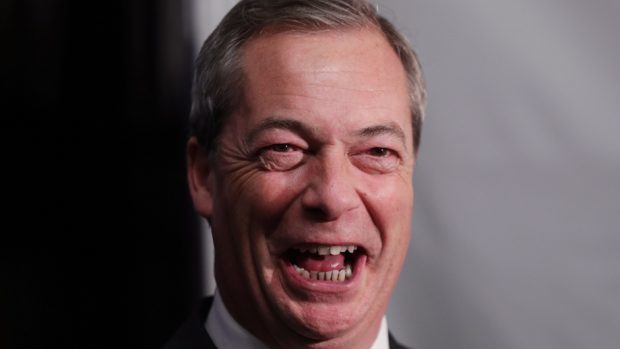The advent of summer traditionally created a sense of dread for journalists.
Once June arrived, we knew that news as we knew it ceased to happen. It became known as the silly season because, instead of lapping up all the big stories which seemed to queue up for attention during winter, newspaper reporters were suddenly restricted to a diet of summer fairs, weddings and, worst of all, the dreaded weather reports. If it wasn’t “Phew! What a scorcher!”, it was a doom-laden “It’s a washout!”.
Summer really was a desperate time for our profession.
Not any more, however. This summer is shaping up to be one of the most newsworthy in living memory, thanks mainly to the most extraordinary political developments this country has ever witnessed.
Turn back the clock a year, and the Liberal Democrats were political has-beens, relegated from Britain’s top table to the third division, scrambling for protest votes alongside the Green Party and the Monster Raving Loony Party. They were largely irrelevant, a pale shadow of what had once been a viable alternative to Britain’s two, and Scotland’s three, main parties.
How times have changed. Following on from their resounding success in the European elections, an opinion poll last week concluded that, if a General Election were to take place now, the Liberal Democrats would win.
Of course, this political upheaval stems from Brexit, undoubtedly one of the biggest failures of parliament in history and a shocking indictment of the party-before-people attitude of the Conservatives and Labour. It remains to be seen whether the Lib Dems’ support holds up once our fate in the EU is finally determined, but it certainly seems that the same-old, same-old political landscape is no more.
Proof of that would seem to come from the remarkable performance of the Brexit Party in those European elections. It is almost inconceivable that a political party founded only six weeks earlier, and without a single policy other than a commitment to leave the EU come what may, could emerge as the biggest winner. The outcome was a major kick in the teeth for Theresa May and Jeremy Corbyn, but it was also a ringing endorsement of Nigel Farage, an enigma if ever there was one.
Mr Farage is widely, and rightly, despised by people who look beyond his soundbites and see a deeply unpleasant character who should not be allowed within a million miles of a position of real power. Yet he has an uncanny knack of pushing the right buttons where the man and woman in the street are concerned. He has latched onto the deep divisions in both the Tory and Labour ranks and driven the wedge between them ever deeper. Having successfully exploited their growing weaknesses, he has now declared his intention to translate that European success into victory on the domestic front should the impasse over Brexit result in an early General Election, as well it might.
Logically, that would appear to be a non-starter, because he will need to have a properly-funded manifesto setting out his party’s plans on issues ultimately much more important than leaving the EU, at which point his true colours will emerge and popular support will evaporate. And yet, the events of the last three years have shown that logic is in pretty short supply where politics are concerned.
Nothing can be taken for granted in these tumultuous times, which possibly explains why 13 people have so far put their names in the hat to succeed Theresa May when she steps down as leader of the Conservative Party on Friday. Most of the big money has gone on Boris Johnson or Michael Gove emerging victorious, but the fact that the long list contains some names previously unheard of demonstrates again just how unpredictable politics has become. They will no doubt take heart from the fact that, historically, early favourites have never won a Conservative leadership campaign, but can any of the rank outsiders really win? Recent history suggests they might.
Here in Scotland, the shenanigans in Westminster must be music to the ears of Nicola Sturgeon as she plots the pathway to a second independence referendum. Having seemingly shaken off the shackles placed on her by Alex Salmond’s “once in a generation” pledge before the 2014 votes, she now has just two major obstacles in her way.
The first is the near-certainty that Westminster will refuse to allow IndyRef2. If, however, she can somehow negotiate a way around that, her attention will need to turn to the timing of a new vote. The forthcoming trial of Mr Salmond on attempted rape and sexual assault charges will inevitably be a difficult distraction for the party and she must ensure that campaigning does not coincide with the blanket media coverage which will accompany the proceedings. But she also has to schedule the vote before the Scottish elections in 2021.
Her window of opportunity could well prove to be very small indeed.
Difficult times for our political leaders – but great times for journalists.
Derek Tucker is a former editor of the Press and Journal

